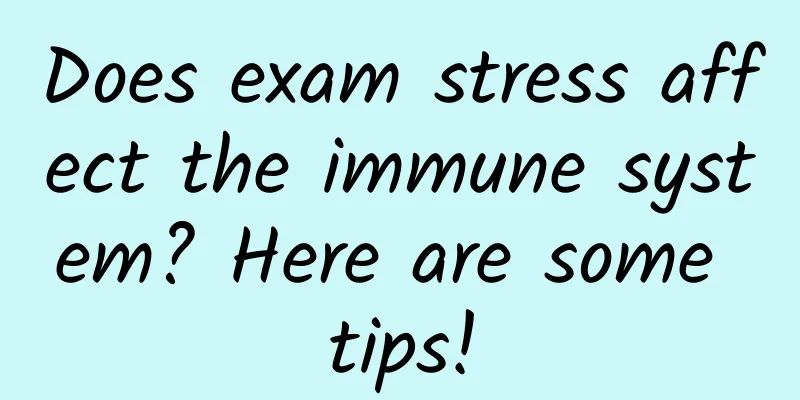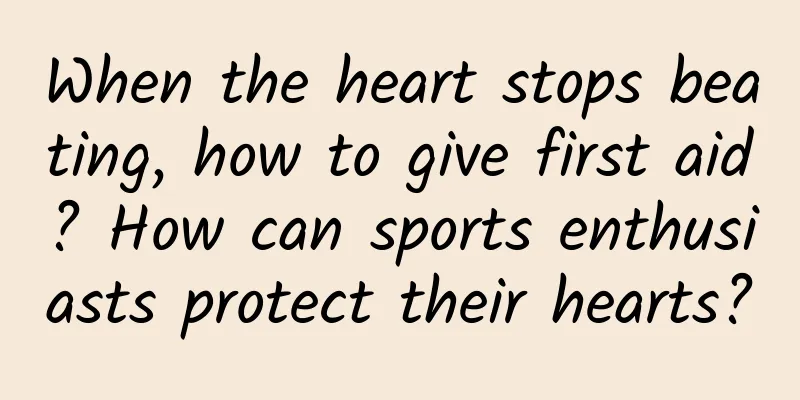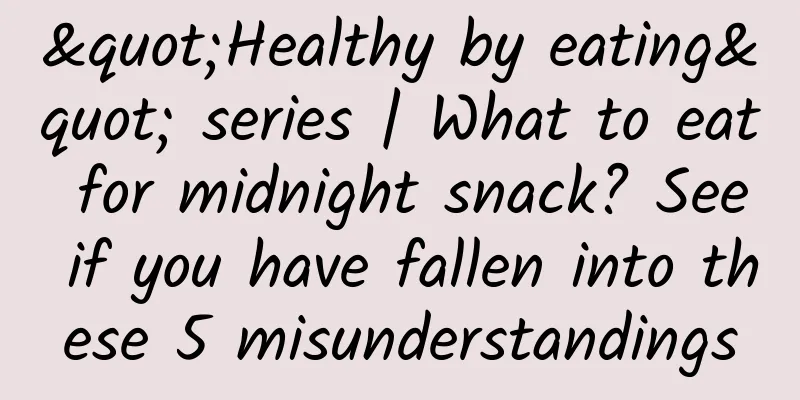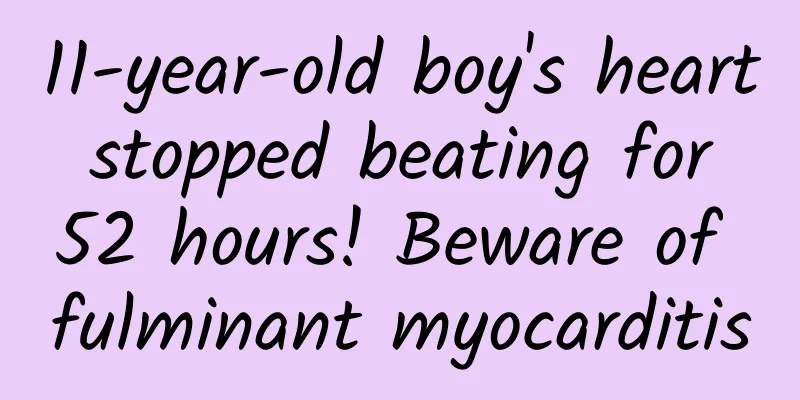Does exam stress affect the immune system? Here are some tips!

|
It is the annual college entrance examination day again. First of all, I wish you good luck in the exam. The media has been full of content about the college entrance examination these days, so we are no exception and will talk about the college entrance examination. But of course we can't be so vulgar, let's talk about what happens after the exam. Many candidates hope to relax after the exam, but just like Murphy's Law, what can go wrong will always go wrong: before they decide where to go for fun, many people start to have sore throats, fevers, and feel uncomfortable all over - they fall ill. The impact of stress on the immune system The pressure of the college entrance examination is enormous - this pressure is not just in the few days of the exam, but throughout the long preparation period. When people feel stressed, three hormones will increase: cortisol, adrenaline, and norepinephrine. These hormones make the heart beat faster and breathing faster to provide more energy to the body. These chemicals can also control body temperature, reduce hunger, and reduce sensitivity to pain. For short-term stress, once the stressful event is over, the body will no longer have these stress reactions, and after relaxing and resting, it will be full of energy again. But with long-term stress like the college entrance exam, these stress reactions won’t go away on their own because there’s no chance to rest or adjust. These negative reactions will continue to accumulate, and we’ll feel like our bodies are overloaded, and at this point, our short-term stress becomes long-term stress. This means more problems will develop in your body. Headaches, eating too much or too little, tossing and turning at night, or feeling down or angry all the time are symptoms of long-term stress. These symptoms appear when the body can no longer handle it. Chronic stress increases your chances of getting everything from the common cold to cancer. As early as the 1980s and 1990s, many studies have pointed out that exams can cause changes in immune responses. However, when the pressure is high, the resistance to disease is not reduced but increased. Stress will cause the cortisol level to increase, and the body's immune response will decrease. In other words, if there is a virus or bacteria invasion at this time, the immune response such as inflammation and fever is likely to be suppressed. However, after a few weeks or even months of tension, the cortisol level will have a negative reflex arc, that is, after a long period of increase, it will drop sharply and fall below the normal level. At this time, many immune responses may collapse, and the manifestation is a serious illness. Changes in the immune system before and after the exam are reflected in the amount of nitric oxide in the exhaled breath (Fractional exhaled nitric oxide, or FeNO, is produced by airway cells, and its concentration is highly correlated with the number of inflammatory cells, serving as a biomarker of airway inflammation). When pathogens invade, the respiratory epidermis and immune cells release nitric oxide to neutralize the pathogens for protection. In addition, nitric oxide can also relax organs and prevent pulmonary hypertension. However, in the face of long-term stress, the amount of nitric oxide in the exhaled breath of healthy people will decrease. For example, studies have found that FeNO and lung function decreased during the final exam period compared to the middle of the semester, and the decrease was more significant in the early stage of the exam than in the later stage of the exam. Many people find that they are more likely to lose their hair when they are stressed, which may also be due to changes in the immune system. A recent study found that the immune system balance of female students taking the medical examination changed significantly during the review period compared with female medical students who did not take the examination. Analysis of hair samples found that the hair growth of the female students in the examination group was hindered. In addition to stress causing changes in the immune system, staying up late to review and preparing for the exam and lack of sleep for a long time can also lead to a decline in the immune system. Studies have found that in the early and late stages of sleep, the immune system exchanges cells and body fluids in different directions, which means that sleep balances the function of the immune system, and lack of sleep can easily disrupt this regulation. In fact, even if it is not a critical exam like the college entrance examination, a general exam may increase the level of cortisol. Some people think it may be related to cognitive load, some think it is related to social evaluation, and some think it is related to the expectations of the exam and the test results. Studies have found that different types of exams have different effects on cortisol: exams that require rote memorization will significantly increase cortisol levels, while exams that emphasize problem solving will have relatively small changes in cortisol. In fact, many people fall ill not only after exams, but also after long hours of intensive work, and many people get sick as soon as they have a holiday. In 2002, a Dutch study surveyed more than 1,800 adults, and about 3% of them got sick on weekends or holidays. The researcher, Dr. Vingerhoets, called this phenomenon "leisure sickness", and the main symptoms include headaches, fatigue, muscle pain, nausea, and colds. Most patients with "leisure sickness" initially had significant life stress events, such as marriage, birth of children, job changes, etc., and these people also had a lot in common, such as busy work, perfectionism, overflowing sense of responsibility, and difficulty in withdrawing from work. Dr. Vingerhoets believes that the possible cause of leisure sickness is the competition between internal and external information: if the external information fills the mind, it is likely to ignore the information the body tells you - I feel uncomfortable! I need to rest! Another possible explanation is that the will overcomes the body: these people can delay getting sick until the "right" time without affecting their work. This is like those who are critically ill, who may wait until they complete some wishes before they die with a smile. In Vingerhoets' study, 20 people got rid of leisure sickness, mostly because they changed their jobs or changed their attitudes. But if you can't change your job or change your attitude, exercising every Friday night can also help you switch from work to leisure. What to do when faced with overwhelming pressure? Move and sing Physical exercise is one of the most important ways to get rid of stress. It can clear your mind and boost your spirits. Physical activity can also increase dopamine levels, a chemical that makes us feel happy. Singing loudly can also help us relax. Many people know that deep breathing can help us calm down quickly, and when we sing, our lung capacity increases, which can also help us relax. Replenish energy A healthy breakfast will give you the nutrients you need for the day. Eating on time and enjoying the process of eating will also make you feel good. "Eating full" and "eating nutritiously" are not the same thing. Don't think that drinking carbonated drinks and eating snacks can meet all the nutrients and energy you need for the whole day. This energy can only last for a short time, and then you will feel more tired than usual. If it really doesn't work, drinking more yogurt will also help - according to research, students whose foods contain lactobacilli have less immune system suppression. Laugh out loud When you laugh, 15 facial muscles move together. Laughter can also make you feel happy, and this good mood can last. When you feel stressed, you might as well read some funny comics or comedy movies, listen to jokes, and have a good laugh, which can make you feel refreshed. sleep Lack of sleep can make us feel tired, and the feeling of tiredness itself is accompanied by stress. Sleep can help us replenish our energy and keep our brain active. In addition to sleeping at night, taking a nap during the day also has unexpected effects. Studies have found that "naps" during the day are much more efficient than "long sleep" at night. Written by Wang Richu, Institute of Psychology, Chinese Academy of Sciences References: 1. Kang DH et al (1996). Academic Examinations Significantly Impact Immune Responses, but Not Lung Function, in Healthy and Well-Managed Asthmatic Adolescents. Brain, Behavior, and Immunity, 10, 164-181 2. Minkley N & Kirchner WH (2012). Influence of test tasks with different cognitive demands on salivary cortisol concentrations in school students. International Journal of Psychophysiology, 86, 245-250 3. Trueba AF et al (2013). Academic exam stress and depressive mood are associated with reductions in exhaled nitric oxide in healthy individuals, Biological psychology, 93, 206-212. 4. Peters E et al (2017). Hair and stress: A pilot study of hair and cytokine balance alteration in healthy young women under major exam stress, PLos One, 12(4):e0175904 5. Vingerhoets AJJM et al (2002). Leisure sickness: A pilot study on its prevalence, phenomenology, and background. Psychotherapy and Psychosomaticsm, 71, 311-317. Some of the pictures in this article are from the Internet. If there are any copyright issues, please contact us |
>>: Garlic, you are awesome! How did garlic conquer the human stomach step by step?
Recommend
China's lithium battery production capacity accounts for 70% of the world's total. Six Chinese companies account for 63.7% of the world's installed capacity of power batteries.
According to recent news, with the vigorous devel...
Will cats lose their ability to catch mice?
I saw a question from a friend: If the instinct f...
Summary of circular progress bar in Android custom View
Recently, I have developed an open source project...
Why has this water conservancy project, which was first built during the Warring States Period, benefited mankind for two thousand years?
After visiting Dujiangyan and Qingcheng Mountain,...
Wang Chuanfu talks about Jia Yueting's car manufacturing: The road is difficult and there is a long way to go
On August 19, Pan Shiyi, Chairman and Co-founder ...
Samsung Mobile Business President: To regain China's top customers are operators
According to the technology website ZDNet, after ...
How should the landing page be designed during the information flow delivery process?
Before I start this article, I want to ask you a ...
How can you make more money than others by copying others?
Preface Wrong, let me ask you a question, how do ...
iOS development of multi-table view sliding switching example (imitating "Toutiao" client)
It's been a long time since I brought you som...
"Matryoshka" is allowed! The pressure suits worn by astronauts also have outer shells
With the full completion of the Chinese space sta...
“Clothing can be antibacterial and antiviral”, is it really effective or just a waste of money?
After experiencing the COVID-19 pandemic, consume...
Yin Chen's four new courses in 2022, 2022 algorithm disassembly and gameplay analysis, Qianchuan's 100 questions practical disassembly
Yin Chen's four new courses in 2022, 2022 alg...
Catching up with Ferrari, BAIC New Energy ARCFOX-7 has a peak torque of over 1,000
According to official news from BAIC New Energy, ...
Why does your app have no users? Because the IQ of ordinary people is "too low" to learn...
Bump is an amazing cross-platform data transfer a...
Super incentive system for gamified product operations
This article was first published in 2015. In rece...









